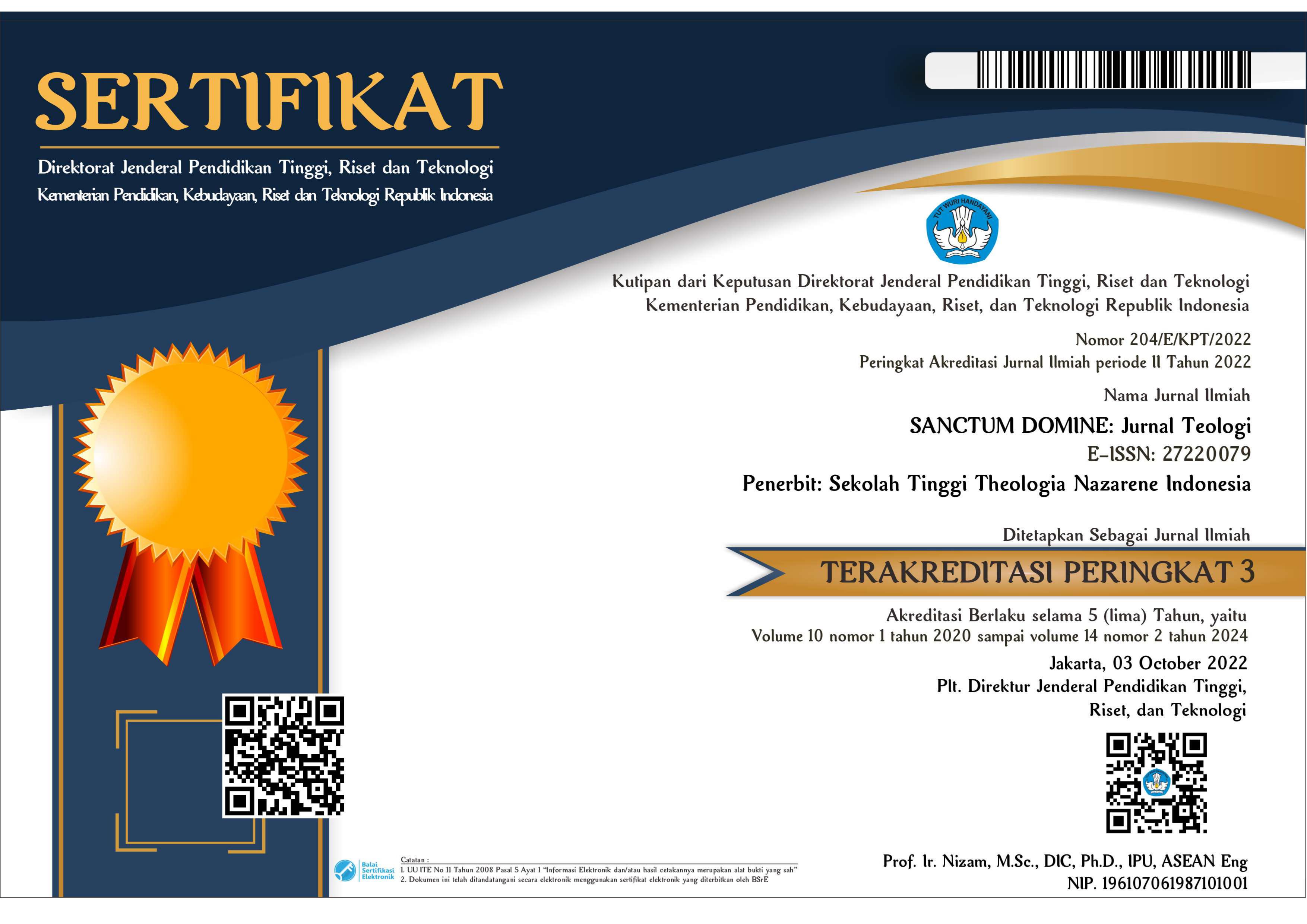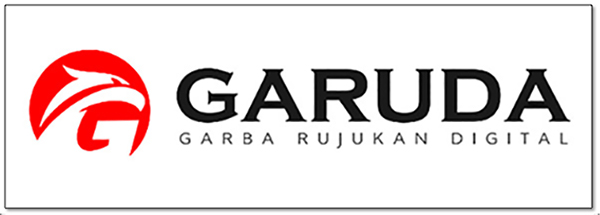YHWH Ekhad in Deuteronomy 6:4 as the Basis of Monotheistic Teaching Calling
Abstract
The issue of Deuteronomy 6:4, which includes the monotheistic creed of Shema Yisrael, is often interpreted solely in the context of monotheistic dogmatics. Deuteronomy 6:4 is not limited to the framework of monotheistic dogma but also has an educational and legal dimension that shapes the moral identity of Israel. This article is an attempt to develop the concept that within the teaching of monotheism lies an effort to form the moral and identity of believers. The article proposes the idea that the call "Hear, O Israel" reflects a rhetoric repeated in Deuteronomy, and the imperative verb "to hear" is considered a fundamental call to monotheistic dogma. Israel's response to this call is deemed crucial because listening to God is indicated by remaining faithful to monotheistic dogma and loving God wholeheartedly. The call to listen is conveyed to the new generation of Israel. The importance of listening and responding to this call is illustrated through the phrase "Shema Israel," which asks Israel to acknowledge that Yahweh is One. Yahweh Ekhad has an educational and legal role in shaping and affirming the moral identity of Israel by emphasizing the importance of teaching and observing the law in response to the call to listen. The relationship between monotheism, religious education, and moral identity in the context of Deuteronomy 6:4 emphasizes the importance of listening and responding to God's call as the foundation for obedience and realization of the monotheistic identity of Israel.
References
Akinsulire, Oladotun Anthony. “The Shema as a Theological Foundation for Christian Education in Postmodern Context.” Sapientia Global Journal of Arts, Humanities and Development Studies (SGOJAHDS) 4, no. 4 (2020): 287–296.
Balswick, Jack O., and Judith K. Balswick. The Family: A Christian Perspective on the Contemporary Home. Grand Rapids: Baker Books House, 2014.
Birch, B.C. Let Justice Roll Down: The Old Testament, Ethics, and Christian Life. 1st ed. Louisville: Westminster, 2015.
Block, Daniel I. “How Many Is God? An Investigation Into the Meaning of Deuteronomy 6:4–5.” JETS 47, no. 2 (2004): 193–212.
Boiliu, Noh Ibrahim, Christina Metallica Samosir, Donna Sampaleng, and A Dan Kia. “Understanding the Role of Parents in Teaching the Faith Through the Election of Israel.” In 1st Virtual Workshop on Writing Scientific Article for International Publication Indexed SCOPUS, edited by Avid Leonardi Sari, Irwandi, and Robbi Rahim, 170–175. Bandung: Sciendo, 2022.
Boiliu, Noh Ibrahim, Haryadi Sarjono, and Harun Y. Natonis. “Land in the Torah as a Source of Christian Religious Education.” E-Journal of Religious and Theological Studies (ERATS) 9, no. 3 (2023): 134–144.
Brueggemann, Walter. Deuteronomy. Nashville: Abingdon Press, 2001.
———. Teologia Perjanjian Lama: Kesaksian, Tangkisan, Pembelaan. Maumere: Seminari Tinggi Ledalero, 2009.
Brueggemann, Walter, and Tod Linafelt. Introduction to the Old Testament: The Canon and Christian Imagination. 2nd ed. Louisville, Kentucky: Westminster John Knox Press, 2019.
Christensen, Duane L. Word Biblical Commentary: Deuteronomy 20:10-34:12. Colombia: Thomas Nelson Publishers, 2015.
Clark, Andrew D., and Bruce W. Winter. Satu Allah Satu Tuhan. Jakarta: BPK Gunung Mulia, 2002.
Coote, Robert B. Sejarah Deuteronomistik: Kedaulatan Dinasti Atas Wilayah Kesukuan Israel. Jakarta: BPK Gunung Mulia, 2015.
Craigie, P.C. Deuteronomy: Commentaries. Michigan: Eerdmans Publishing, 2017.
Driver, S.R. A Critical and Exegetical Commentary On Deuteronomy. Edinburgh: T & T Clark, 1992.
Hall, G. H. Deuteronomy. USA: College Press Publishing, 2000.
Hall, Gary Harlan. Deuteronomy. USA: College Press Publishing, 2000.
Hamlin, John. A Guide to Deuteronomy. Cambridge UK: The University Press, 2003.
Hardiman, F. Budi. Seni Memahami: Hermeneutik Dari Schleiermacher Sampai Derrida. Edited by Widiantoro. Yogyakarta: Kanisius, 2015.
Hinkle, Adrian E. Pedagogical Theory of the Hebrew Bible: An Application of Educational Theory of the Hebrew Bible. Oregon: Wipf and Stock Publishers, 2016.
Janzen, J. Gerald. “On the Most Important Word in the Shema: Deuteronomy 6:4-5.” Vetus Testamentum 37, no. 3 (1987): 281–300.
Lohfink, Norbert. Great Themes From The Old Testament. Edinburgh: T & T Clark, 2013.
Lundbom, Jack R. Deuteronomy: A Commentary. Michigan: Eerdmans Publishing, 2019.
Mayes, A.D.H. The New Century Bible Commentary:Deuteronomy. Grand Rapids: Eerdamans Publishing, 1981.
McConville, J.G. Deuteronomy. Downers Grove, IL: InterVersity Press, 2002.
Moberly, R.W.L. Yahweh Is One: Translation of the Shema, in Studies in the Pentateuch. Edited by J.A. Emerton. Leiden: Brill, 1990.
Nelson, Richard D. The Old Testament Library: Deuteronomy. Louisville: Westminster, 2004.
Preuss, Horst Dietrich. Old Testament Theology. Edited by James L. Mays, Carol A. Newsom, and David L. Petersen. 1st ed. Louisville, Kentucky: Westminister John Knox Press, 2009.
———. Old Testament Theology. 2nd ed. Louisville, Kentucky: Westminster John Knox Press, 2010.
Rad, Gerhard von. Deuteronomy. Philadelphia: Westminster, 1966.
———. Studies in Deuteronomy. London: SCM Press, 1961.
Schott, Marilyn. “The Shema ( Duet . 6 : 4-9 ): Its Significance and Implications for the 21 St Century Christian Family By Supervisor : Pelham Lessing,” no. December (2014): 4–9.
Silalahi, Haposan. “Sebuat Metode Hermeneutik Dalam Menemukan Makna Yang Tersembunyi Dalam Teks-Teks Alkitab.” Te Deum: Jurnal Teologi dan Pengembangan Pelayanan 8, no. 1 (2018): 17–49.
Smith, Kevin Gary. Writing and Research. Carlisle, Cumbria: Langham Global Library, 2016.
Soggin, J. A. Introduction to the Old Testament. Philadelphia: Westminte Press, 2010.
Walton, John H, and Victor H. Matthews. Bible Background Commentary: Genesis-Deuteronomy. Downers Grove, IL: InterVersity Press, 2018.
Washington, Harold C., Susan Lochrie Graham, and Pamela Thimmes, eds. Escaping Eden: New Feminist Perspectives on the BibleEchad. New York: New York University Press, 1999.
Weinfeld, Moshe. The Anchor Bible: Deuteronomy 1-11: A New Translation with Introduction and Commentary. New York: The Anchor Bible Doubleday, 1991.
Copyright (c) 2023 SANCTUM DOMINE: JURNAL TEOLOGI

This work is licensed under a Creative Commons Attribution-NonCommercial-ShareAlike 4.0 International License.
Copyright:
SANCTUM DOMINE: Jurnal Teologi will validate, produce, disseminate, and act as steward in the long-term curation of every article published. In order to achieve this, the author typically requires a transfer or “assignment” of the copyright in the article. As is the case for open access publishing, the author (or copyright owner of the article, if different) signs an author publishing agreement. The agreement incorporates the necessary transfer of copyright.
After assigning copyright, the author will still retain the right to:
- Be credited as the author of the article.
- Own and exercise any trademark or patent rights held by author and addressed in the article.
- Make printed copies of the article to use for a lecture or class that the author leading on a non-commercial basis.
- Share the article with friends, colleagues and influential people the author would like to read the work.
- Present the article at a meeting or conference and distribute printed copies of the article on a non-commercial basis.
License:
This work is licensed under a Creative Commons Attribution-NonCommercial-ShareAlike 4.0 International License.
You are free to:
- Share — copy and redistribute the material in any medium or format
- Adapt — remix, transform, and build upon the material
- The licensor cannot revoke these freedoms as long as you follow the license terms.
Under the following terms:
- Attribution — You must give appropriate credit , provide a link to the license, and indicate if changes were made . You may do so in any reasonable manner, but not in any way that suggests the licensor endorses you or your use.
- NonCommercial — You may not use the material for commercial purposes .
- ShareAlike — If you remix, transform, or build upon the material, you must distribute your contributions under the same license as the original.
- No additional restrictions — You may not apply legal terms or technological measures that legally restrict others from doing anything the license permits.
Notices:
You do not have to comply with the license for elements of the material in the public domain or where your use is permitted by an applicable exception or limitation .
No warranties are given. The license may not give you all of the permissions necessary for your intended use. For example, other rights such as publicity, privacy, or moral rights may limit how you use the material.



8.png)









